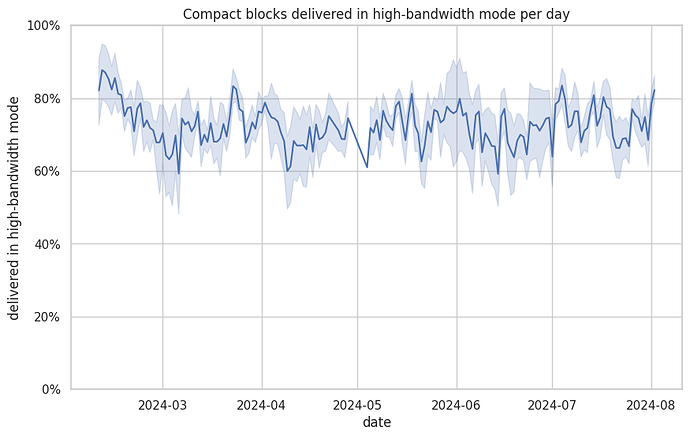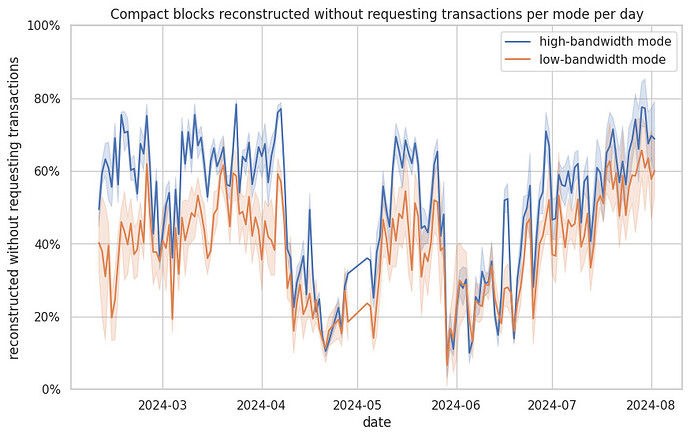About 75% of compact blocks are delivered in high-bandwidth mode (peer sends us a cmpctblock message before they have validated the block). The remaining ~25% are delivered in low-bandwidth mode (peer sends us a inv/headers and we request with a getdata(compactblock)).
Compact blocks received via high-bandwidth mode request transactions less often than (which is better) than compact blocks received in low-bandwidth mode.
I’ve noticed that nearly all compact blocks received have only a single transaction (the coinbase) pre-filled. As far as I understand, compact blocks delivered in low-bandwidth mode are fully validated before being announced (via inv/headers) and sender could pre-fill the transactions it didn’t know about itself. This might reduce the number of low-bandwidth compact blocks that require a transaction request. I’ve yet to check the Bitcoin Core implementation and see if there’s a reason why isn’t currently being done.
Edit:
It’s still a TODO. bitcoin/src/blockencodings.cpp at 2aff9a36c352640a263e8b5de469710f7e80eb54 · bitcoin/bitcoin · GitHub
It might be good to recheck these numbers once Bitcoin Core v28.0 (with full-RBF by default, if merged) is being adopted by the network. If by then, the low-bandwidth mode still has similarly performance, it might make sense to spend some time on implementing this.

